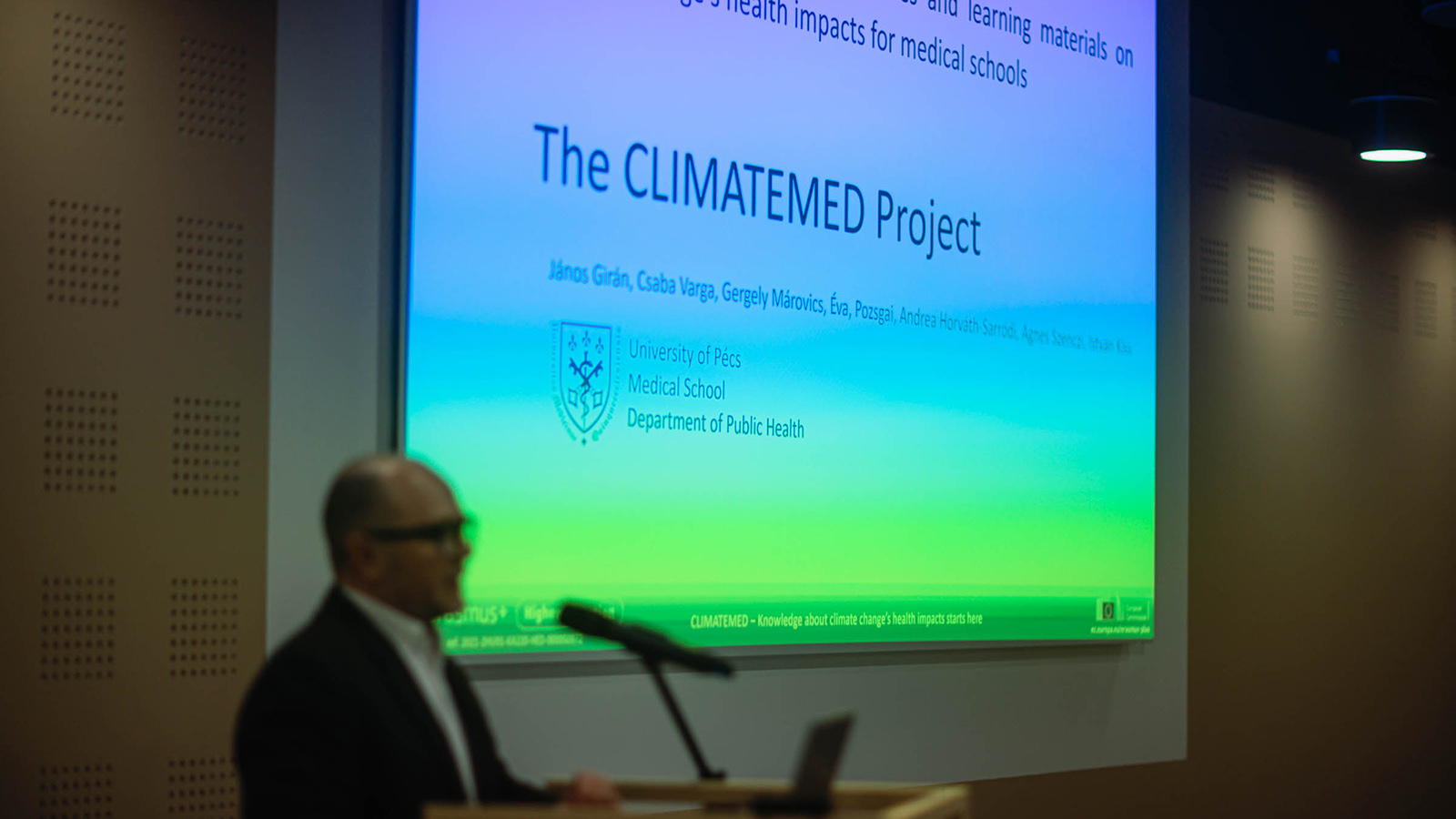The health impacts of climate change could increase the annual number of deaths by 250,000 between 2030 and 2050, based on the WHO’s predictions. This is due to an increase in the prevalence of communicable and non-communicable diseases, as well as additional deaths caused by extreme weather events. Within the framework of the European Union’s Erasmus+ programme, the Department of Public Health Medicine of the Medical School in Pécs has been working to contribute to strengthening the teaching capacity of medical universities through the CLIMATEMED project since 2022 by developing a curriculum and reinforcing climate awareness. On the publication of the “Climate Change and Health” curriculum, Népszava interviewed Dr. János Girán, the project's professional leader and assistant professor at the Department of Public Health of the Medical School in Pécs, and Dr. István Kiss, the head of the Department and an expert in the project.
Népszava reports that the recently finished three-year research project involved doctors from universities in Pécs, Ireland, Romania, and Serbia. The two experts from Pécs summarised the dangers that the experts who developed the curriculum are trying to prepare healthcare workers for. They said that the curriculum titled “Climate Change and Health” is a gap-filling material because while global warming causes the premature death of 250,000 people a year worldwide, only 15 percent of universities prepare future doctors for this new phenomenon.
In Hungary, research on the effects of heatwaves began in 2007, and in the first few years, it was already found that 409 more people died during a three-day heatwave than during other periods. Since then, heatwaves have become more frequent and intense, increasing the risk of death.
The experts said that the university curriculum can be completed in 14 weeks, and medical students can register for it as a facultative course at universities in Hungary that offer the training. As outsiders, many believe that the effects of climate change will mainly test doctors in the fields of internal medicine and cardiology, but Dr. János Girán said that it is a challenge in almost all areas of medicine. They emphasized that several species of mosquitoes have already colonised our area, which, if environmental conditions develop accordingly, could even spread malaria. There is also a growing health risk from the increasing frequency of flash floods caused by climate change, which leave infectious contaminants in the groundwater, roads, and house walls.
The article also warns that during heatwaves, it is important not only to increase fluid intake, but to possibly change the dosage of medications routinely taken, since prolonged heatwaves alter the mechanism of action of some medications.
Source:
Népszava
Photo:
Szabolcs Csortos
